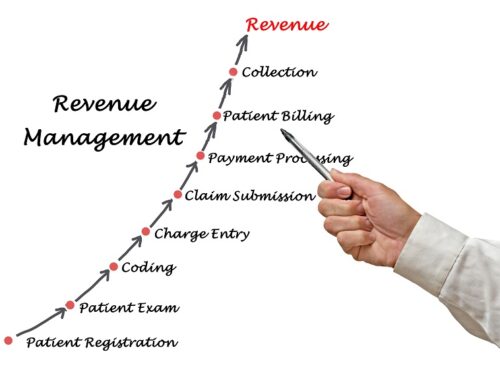In healthcare settings, patient satisfaction is a direct result of their overall experience. When patients are seeing a provider, they need to feel heard. They need to feel that they can trust the practice handling their patient care and personal information. By implementing omni-channel integration, healthcare practices can implement tried-and-true customer service measures to provide patients with a positive experience.
Learn how implementing omni-channel integration can benefit your practice.
What is Omni-Channel Integration?
First, it is important to understand what omnichannel integration is. Simply defined, “omni-channel” is essentially a way to describe the many different communication methods and platforms that exist. Those commonly will include connecting by phone, online, in person, or even on social media. Omni-channel integration means that a facility gives patients the choice of how they reach and connect with their providers through common channels that are all connected on the provider’s side.
When all those channels are connected and aligned, the experience is the same no matter how it starts or ends, even if a patient changes platforms. For example, if a patient talks with a patient services representative and schedules an appointment on the phone, they can later review that appointment in the online portal. They should be able to reschedule it online even though it was initially booked over the phone. All of the same information should be there—all connected on the provider’s end and available to the patient in the way that is most convenient for them.
How Is Omni-Channel Integration Used?
In healthcare, omnichannel integration means providing patients with the ability to connect with their provider for various reasons through various means— and for the provider, these channels are all connected on their end. It provides patients easy, convenient access to everything from appointment scheduling to telehealth, their electronic health record on the mobile app and on the patient portal, and everything in between.
This gives patients the power to choose what channel or platform works best for them. All of these channels lead back to the healthcare provider’s main system, giving patients a seamless experience that is consistent. Providers can access patient data no matter how the patient reaches out.
How Omni-Channel Integration Benefits Healthcare Patients?

1. Seamless Experience For Patients and Facilities
For patients, working with a healthcare provider who uses omni-channel integration means that their overall experience will be seamless and exponentially better than at facilities that do not offer omni-channel integration. Information is updated in real time, and patients will always have access to their data. They’ll easily be able to connect with their providers, and they’ll be able to get their needs addressed in a more timely manner. There are a multitude of benefits to using omni-channel integration in a healthcare setting.
2. Improved Patient Satisfaction
Overall, patients will experience better customer service. Although they are not a “customer” in the true sense, their overall experience should be regarded in the same way. Easier access means happier patients, which in turn affects how likely they are to return, refer others, and pay their bills. Omni-channel integration can positively impact the entire revenue management cycle.
The patient should never have to experience long wait times to access a representative who can help them or not be able to access their appointment information or electronic healthcare records. Ultimately, this makes it easier and faster for patients to get what they need while simultaneously resulting in more efficient operations for the healthcare facility.
3. Better Patient Care
Not only will patients have easier access to their provider, they ultimately will receive better care. Wait times will be reduced as information is updated in real-time, giving providers more time to assess and meet with their patients versus working on administrative duties. Patients will get personalized information and results to their questions, and simple appointment-setting will improve their overall experience.
Potential Challenges to Omni-Channel Integration
1. Expense
IT expenses often leave providers with a bit of sticker shock, which can be a challenge that some organizations need to plan for in order to mitigate surprises. Including omni-channel integration into the budget will provide patients with a more streamlined experience that they, quite frankly, will demand. As more providers offer this flexibility, patients will come to expect it.
Overhead costs are, unfortunately, part of running a healthcare organization, whether a small practice or a larger facility. Although it is an expense, it is one that providers should incorporate into their budget. It is an investment, but a worthwhile one, as the return on investment comes back in spades with satisfied patients who return and refer.
2. Technology
Staying up to date with ever-changing technology is a challenge for anyone, even those in data and tech! Healthcare organizations may be overwhelmed by constant updates and changes if unprepared. To avoid this challenge, providers should have staff with the right expertise and review and update all data and technology at regular intervals to ensure it’s current. Another option is to work with a company that can take care of all that for the healthcare organization so they can focus on what they do best: caring for patients.
3. Security and Privacy
One of the biggest hurdles for healthcare facilities is ensuring that their data is adequately secured and complies with the latest healthcare regulations and long standing requirements like HIPAA. A potential challenge is not investing in or accessing the latest data security, which could expose a practice to significant liabilities.
The good news is that organizations considering omni-channel integration are often looking at outsourcing their IT and customer experience services, which means this can be handled by a company with expertise in omni-channel integration, like Credence Global Solutions.
Use Omni-Channel Integration at Your Healthcare Facility
The future of healthcare lies with omni-channel integration. Interested in seeing how it could revolutionize communication and your overall patient experience? Reach out to Credence Global Solutions today to learn how you can make a positive change in how your practice gets things done and how we can help you accomplish those goals.





